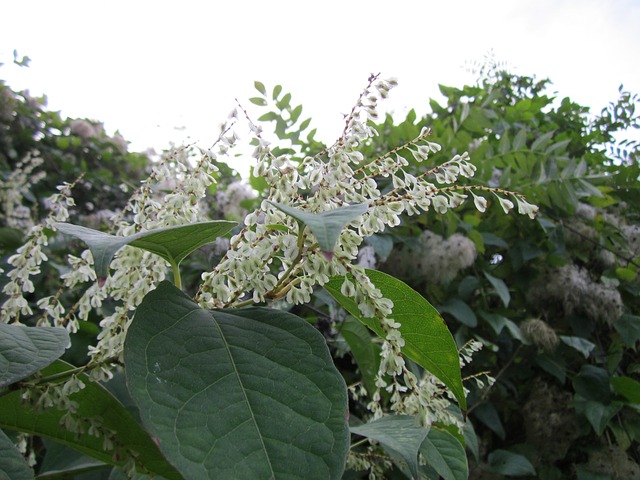
Researchers at Leiden University’s Biology Institute have discovered that Japanese leaf fleas can be used to tackle Japanese knotweed. The breakthrough research took place on a cycle path in Amsterdam Zuid and demonstrated how a natural predator of Japanese knotweed could be an effective way to control the growth of the weed.
Japanese knotweed can grow up to 10 centimetres a day and is capable of damaging paths, walls and other structures. For that reason, researchers are always trying to find new and inventive ways to deal with it. Sadly, Japanese knotweed has been rife in the UK and across Europe for decades, and although there are some effective ways to remove it, most people would struggle to tackle it on their own.
The Japanese leaf fleas used in the study (aphalari itadori) are a natural predator that feed on the sap that Japanese knotweed buds need to grow. Researchers let them loose in three trial locations in October last year to see if they would help reduce the quantity of knotweed. Not only did they attack the knotweed, but they also multiplied and spread rapidly. Their increasing number meant that large amounts of knotweed was prevented from growing.
‘It is very important that they multiplied because we need a lot of fleas to tackle the problem,’ said head researcher Suzanne Lommen.
In one of the locations chosen for the experiment, the fleas had kept the plant down to one metre high. Without the fleas, researchers predict that Japanese knotweed would've normally shot up to five metres high. This was a huge breakthrough!
‘If the flea becomes a permanent fixture here we have a cheap and environmentally friendly way of keeping knotweed in check, which we can combine with more expensive methods,’ Lommen said.
Like the plant, which was originally brought here in the 19th century and kept for ornamental purposes, the flea is an exotic species. So before it can be introduced in more locations in the Netherlands (or elsewhere), permission will need to be granted by local authorities.
Some people might ask the question: "aren't we just replacing one infestation with another?" it turns out that Japanese leaf fleas don't tend to eat other plants, so over time (as the knotweed disappears) the fleas will start to dwindle in numbers too.
How can Total Weed Control help me?
If you don't fancy releasing a swarm of Japanese leaf fleas into your garden to treat your Japanese knotweed problem, don't worry - there are other treatment options available. We offer professional Japanese knotweed treatments in South Wales and southwest England. Find out more about our Japanese knotweed treatment options below.
Browse Our Japanese Knotweed Treatment Options >
